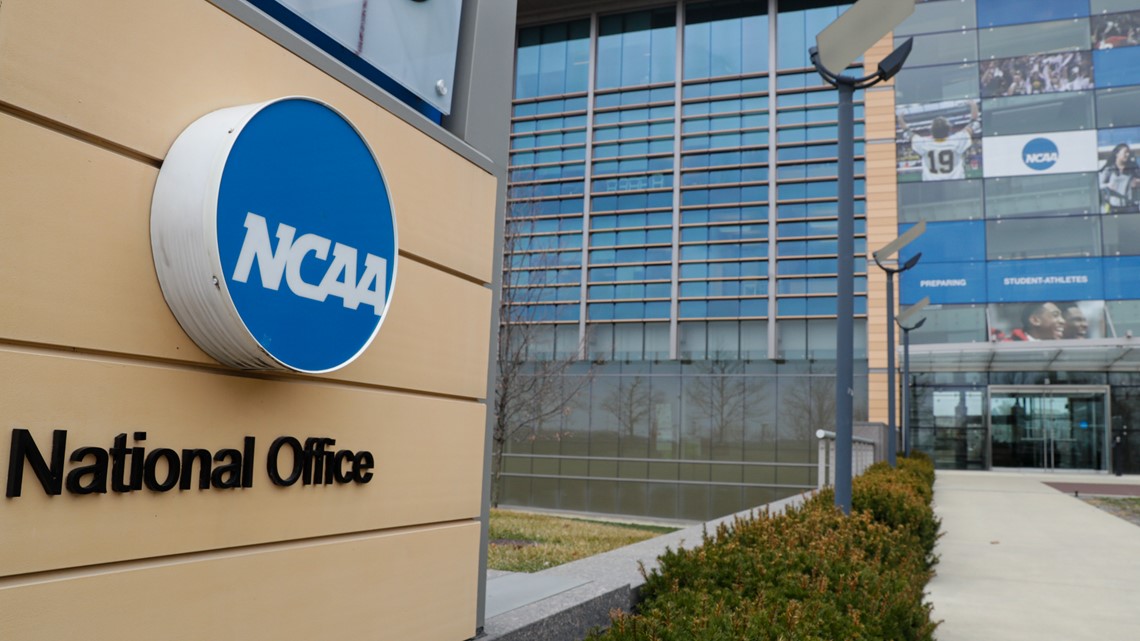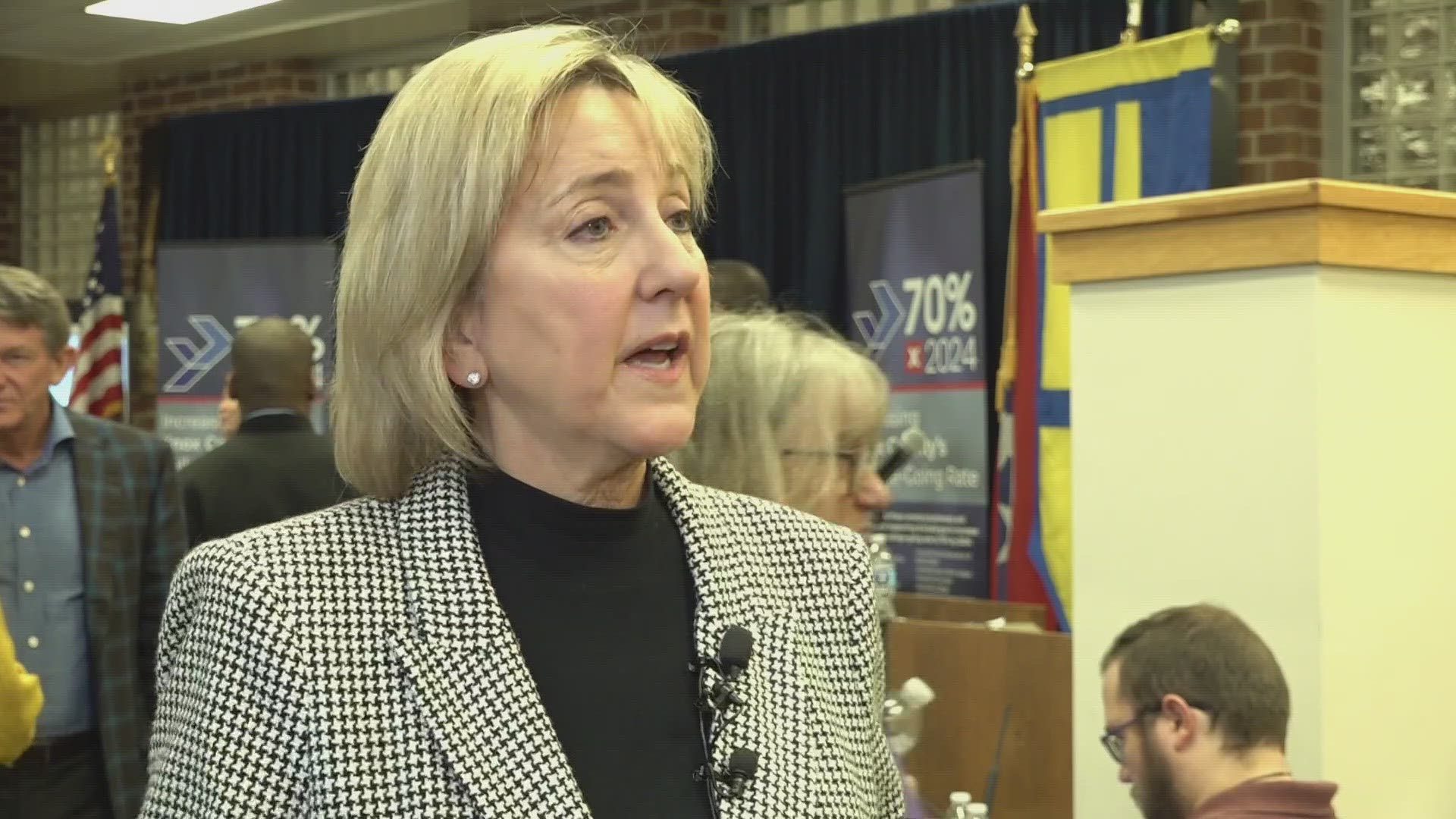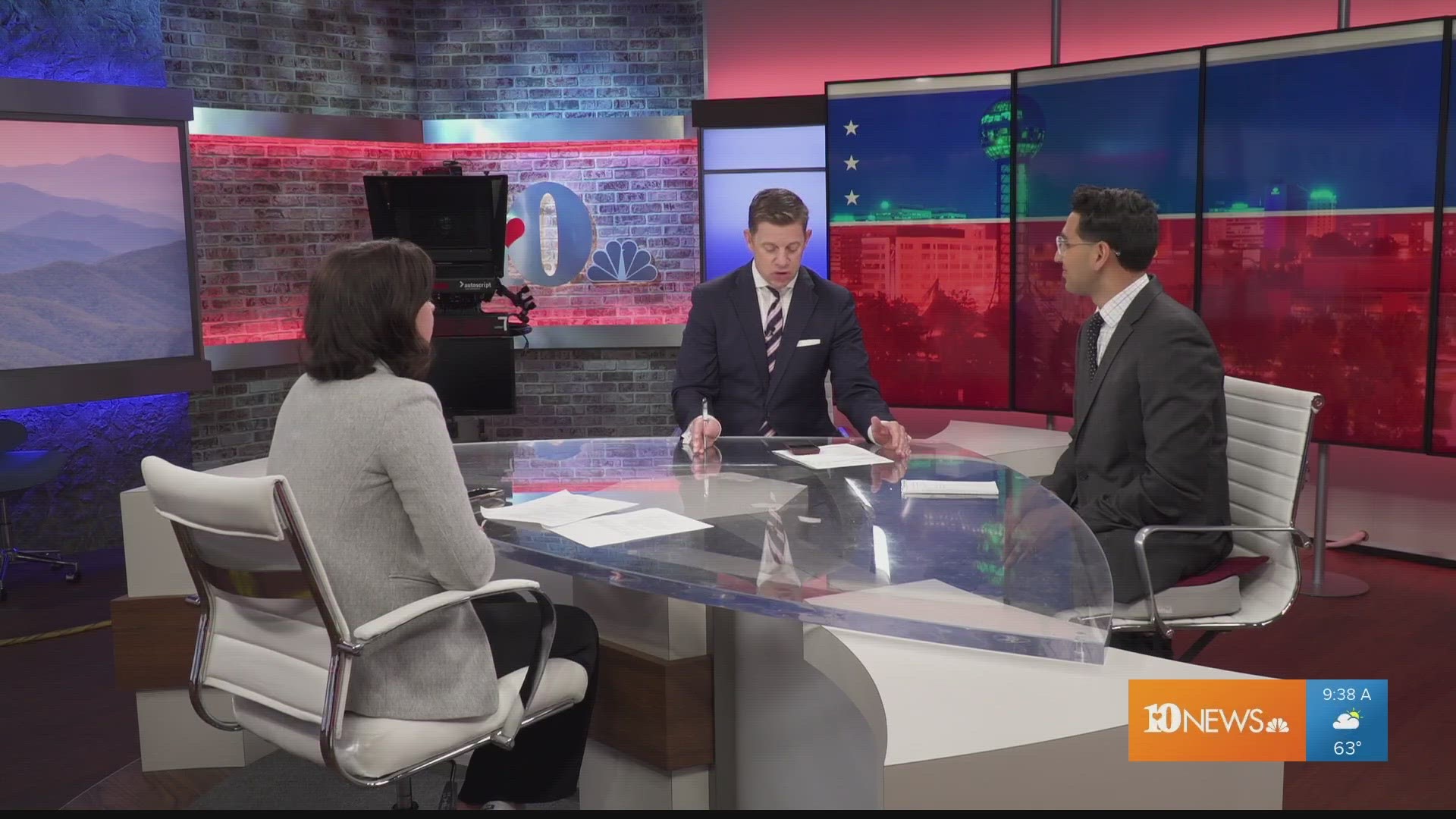KNOXVILLE, Tenn. — The NCAA is "thumbing its nose" at state and federal law and arbitrarily and unfairly trying to regulate the ability of young athletes to benefit from their name, image and likeness in sports, the Tennessee attorney general alleges in a federal lawsuit filed Wednesday in Knoxville.
Tennessee and Virginia are joining forces in attacking the National Collegiate Athletic Association over its attempts to regulate athletic access to "NIL" deals. The complaint signals a high-stakes fight that could go on for months if not years.
The carefully orchestrated lawsuit follows revelations Tuesday that the University of Tennessee has engaged in a behind-the-scenes dispute with NCAA investigators over non-specific suspicions and allegations of wrongdoing by athletes who may have had NIL deals.
An NCAA spokesman issued a statement to WBIR on Wednesday afternoon:
"While the NCAA generally does not comment on specific infractions cases, it is important to remember that NCAA member schools and conferences not only make the rules but routinely call for greater enforcement of those rules and holding violators accountable. In recent years, this has been especially true as it relates to establishing and enforcing a consistent set of national rules intended to manage the name, image and likeness environment. This legal action would exacerbate what our members themselves have frequently described as a “wild west” atmosphere, further tilting competitive imbalance among schools in neighboring states, and diminishing protections for student-athletes from potential exploitation. The NCAA remains firmly committed to protecting and expanding student-athletes’ NIL rights and opportunities. However, our membership has steadfastly supported the prohibition on impermissible recruiting contacts, booster involvement in recruiting prospects and the use of NIL offers as recruiting inducements."
PLOWMAN BLASTS NCAA
UT Chancellor Donde Plowman blasted the NCAA and President Charlie Baker in a letter dated Monday and released Tuesday. On Wednesday, she showed no concern about potential consequences from the NCAA's investigation.
"I am so proud of our athletic department and this university, I have no concerns. What I have concerns about is just the whole scene of college athletics—the landscape," Plowman said.
Many local and state leaders have shown support for Plowman and the attorney general. The chancellor said she's thrilled to receive the support, but it doesn't surprise her. She also said there was no question in her mind about releasing the highly critical letter.
"When you're leading in university and someone attacks you and makes an allegation that isn't true, I will always respond," Plowman said. "The most significant thing about that is, I will always stand up for our student-athletes. That's where the attack was really on—if you want to be honest about it. And so, it won't be the last time I stand up for student-athletes."

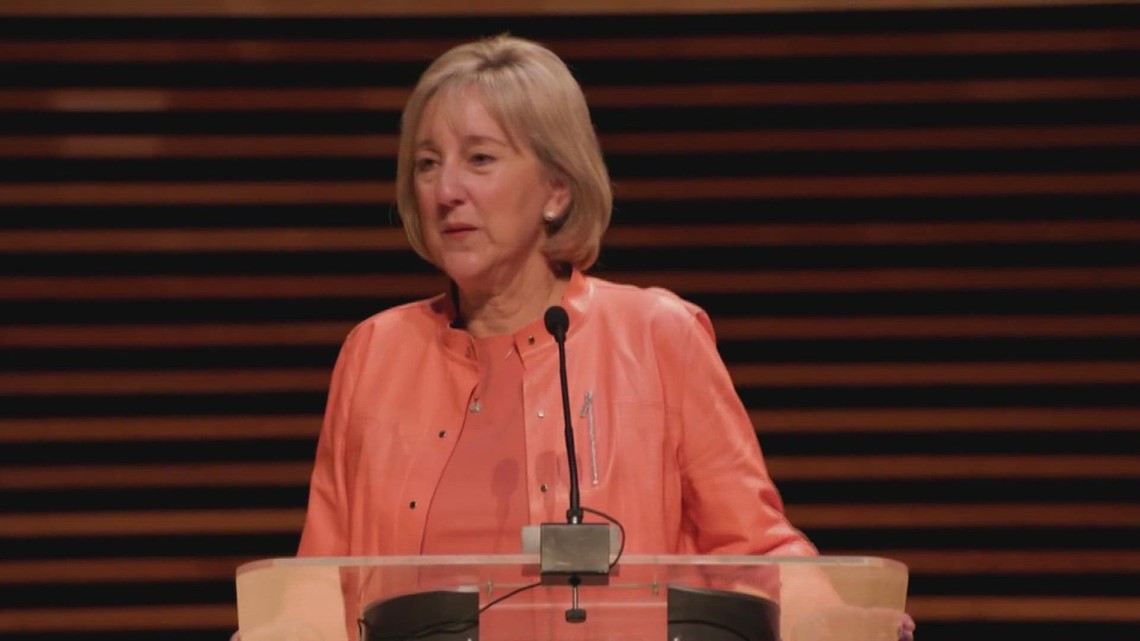
State Attorney General Jonathan Skrmetti promptly filed the state's 20-page complaint Wednesday in federal court in Knoxville. Since ascending to office in late 2022, Skrmetti has used his bully pulpit to join multiple state and national challenges, often with a political bent.
Tennessee law has codified NIL as a standard option for talented college athletes, the attorney general argues in the complaint. Now the NCAA is trying to wrestle back control and retroactively try to assert authority over established practices.
"After allowing NIL licensing to emerge nationwide, the NCAA is trying to stop the market from functioning," the complaint states. "This month, it announced new proposals related to 'student-athlete protections in NIL.' These 'protections' allow current athletes to pursue NIL compensation. But it bans prospective college athletes (including current college athletes looking to transfer to another school who are in the 'transfer portal') from discussing potential NIL opportunities before they actually enroll.
"It's like a coach looking for a new job, and freely talking to many different schools, but being unable to negotiate salary until after he's picked one (the depressive effect on coaches' wages in such a dysfunctional market is obvious)."
Tennessee and Virginia argue the NCAA is breaking federal antitrust laws in stymieing the ability of athletes to take part in what's now established legal practice.
They seek legally to enjoin or stop the Indianapolis-based college athletics overseer from acting further.
They argue the U.S. Supreme Court already has cleared the way for athletes to pursue NIL deals through a 2021 decision widely referred to as the Alston decision.
Alston set colleges and athletes on a path to formalizing the ability of gifted competitors to pursue side deals based on their individual performances.
Critics, however, have raised the specter of universities using the allure of NIL as a way to attract 5-star athletes.
UT and now Skrmetti argue the NCAA is creating "chaos" on the collegiate scene by trying to reassert itself in what's already established practice.

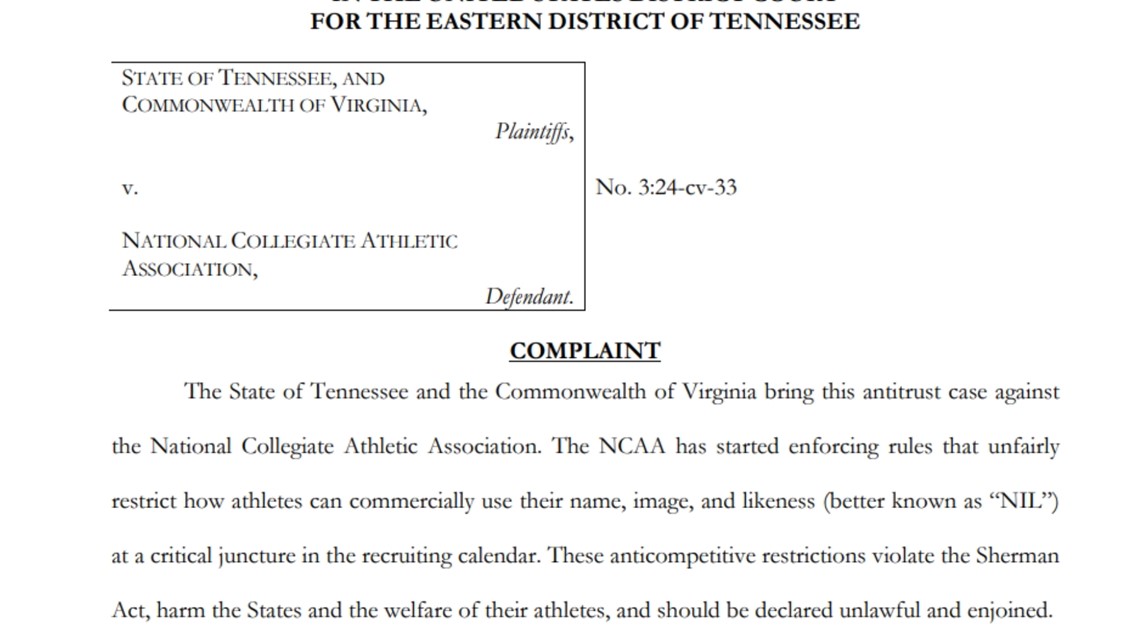
WHITE COMMENTS INCLUDED IN COMPLAINT
Wednesday's lawsuit includes a "declaration" to the court by UT Athletic Director Danny White.
He argues NCAA rules regarding NIL and when young athletes can pursue such deals have become "vague, confusing and ever-changing..."
The NCAA's stance addressing prospective athletes amounts now to an NIL-recruitment "ban," he said in the document.
"The NCAA's NIL-recruitment ban harms prospective and current student-athletes," White said. "It aims to prohibit universities from meaningfully with NIL collectives, and thus from talking to recruits about their potential NIL opportunities in their communities. Virtually every recruit asks about NIL. But under the current rules, recruits must rely on speculation to determine their potential NIL deals at a school."
Plowman said in her letter this week to Baker that the collegiate group is being disingenuous.
"It is intellectually dishonest for the NCAA staff to issue guidelines that say a third-party collective/business may meet with prospective student-athletes, discuss NIL, even enter into a contract with prospective student-athletes, but at the same time say that the collective may not engage in conversations that would be of a recruiting nature," Plowman's Jan. 29 letter to Baker states.
"Any discussion about NIL might factor into a prospective student-athlete’s decision to attend an institution. This creates an inherently unworkable situation, and everyone knows it."
UT sought in December to talk with Baker, indicating investigators had been at work for some time. Documents released by UT show the NCAA informed Plowman that Baker wasn't available.
The New York Times has suggested in a report that the pending NCAA investigation stems at least in part from recruiting contact UT may have had with star quarterback Nico Iamaleava of California and the use of a private jet provided by a collective. Collectives have become the means by which athletes can secure and receive NIL deals.
"The NCAA and its members need to redefine their relationship to create proactive partnerships that actually help solve the problems facing intercollegiate athletics," Plowman's letter states. "Rather than partnering with institutions – including institutions like ours that the NCAA has cited for “exemplary leadership” – the NCAA enforcement staff appears to be trying to bully institutions back to a time before the Alston decision, which will inevitably lead to more lawsuits. What I don’t think the NCAA has embraced to date is how the actions of the enforcement staff in pursuing NIL enforcement is a continuation of the resistance to compensating student-athletes, a predisposition that led to the Alston decision and all the other lawsuits now facing the NCAA."

